Not sure if you should live the van life or take an RV cross-country? Both have their perks, but it can be tough to decide which is right for you. In this blog post, we will outline the pros and cons of each lifestyle so that you can make an informed decision about your future travels!
Many begin to understand that the smaller, the more profitable, and move to small houses. In fact, this movement is becoming more popular in the world every day. The US is experiencing a boom in love for compact and mobile homes.
According to statistics in the United States, with age, when children begin to live separately, parents have a desire to move into a cozy small house and continue to live on. Young people, on the contrary, do not consider the possibility of living in compact houses as a priority and dream of spacious apartments or a traditional big house. In addition, it should be added that people of retirement age prefer mobile small houses, as this is a great way to travel.
Table of Contents
History of motorhomes
The founder of the Airstream Trailer Company (the most famous manufacturer of cars on wheels) Wally Byam was born a traveler. As a child, he traveled with his grandfather in a cart pulled by mules across Oregon.
After leaving school, Wall took a job as a sailor in the Navy and stayed there for three years. In 1923, he entered the university, studied as a lawyer, but did not work in his specialty.
He went into the advertising business, where he excelled and even became a magazine publisher. He once published an article describing a plan to build a road trip trailer.
Inspired by the topic of auto travel, he decided to build a real motorhome. The article received a lot of feedback, because a caravan trailer or camper provided complete freedom in travel. Free choice of route, season and time of rest. It is not surprising that after decades, motorhomes are widely used for comfortable family vacations, organizing campsites, and even for creating mobile tourist bases on the sea coasts.
First motor home
This unique caravan was designed and commissioned by the former Royal Naval Surgeon, Dr. William Gordon Style. Built by Bristol Wagon Works, this “road yacht” was 5.5 meters long, 1.8 meters wide, 3 meters high, and weighed a whopping two tons.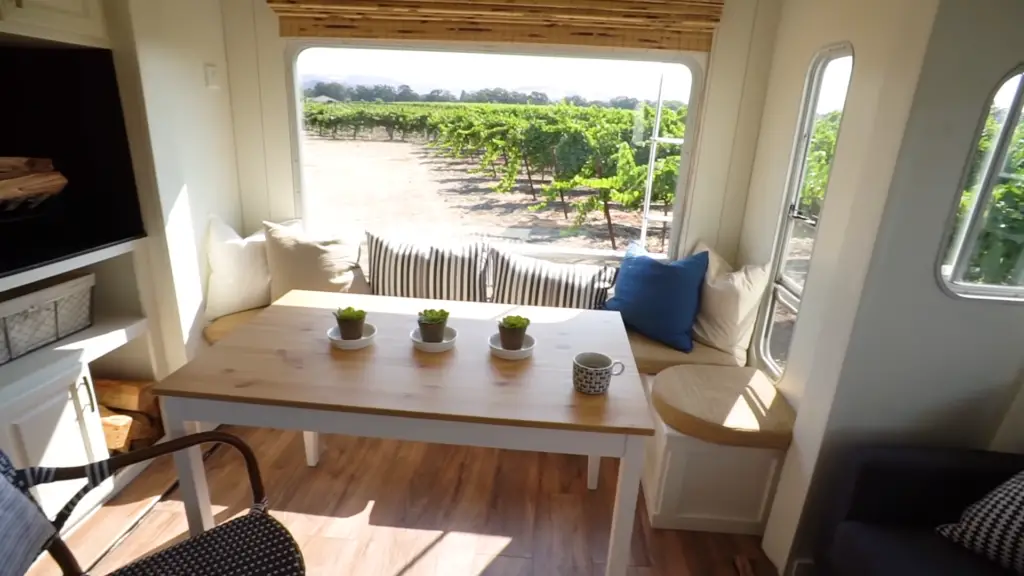
The Wanderer was pulled by two heavy horses named Polly Peas and Captain Cornflower – they were accompanied by a valet, a coachman, a Newfoundland dog and a cockatoo. [2]
Rise of caravanning
The real heyday of the era of auto tourism and car travel came in the 60s. The first motorhomes were constructed from wood according to simple drawings, and at first it was a very small motorhome, more often a rounded trailer on one axle.
Wall was selling blueprints for motorhomes and campers for $100 and soon built his own trailer for sale. Motorhome sales were doing well. The innovation applied in the invention made it possible to make the floor below the level of the wheels and raise the ceiling accordingly, this made it possible to walk inside the caravan at full height.
Americans loved trailers and bought them in huge quantities. Each new modification of the trailer became a hit.
By the early 70s, the popularity of trailers and motorhomes was growing at a frantic pace. Motorhome “Classic” brought car travel to a new, previously unattainable level of quality. New materials in production, new technologies, new equipment and the mobile home has become very technological and high quality.
The air-suspended trailer was chosen by NASA as the home for astronauts, and since then, air-suspended motorhomes have been an integral part of astronaut life at the spaceport.
Already in the 80s, a more advanced design scheme for motorhomes on wheels appeared. The body with the appropriate equipment and filling was installed on a chassis from well-known automobile manufacturers such as Mercedes-Benz, MAN and others. [3]
Features of recreation and travel
Often a motorhome is a dream come true for many people who like to actively travel together and have the opportunity to enjoy the benefits of a cozy and comfortable home. This is a great option for traveling because there is almost everything you need for a comfortable stay: a portable shower, toilet, kitchen and sleeping places. Here you can relax and work. Unlike well-planned flights or train rides, a motorhome gives you the freedom to move around when and how you want. I liked the place on the road – we stopped and spent a few days there. If you want to relax, you turn to the side of the road and settle down for the night under the starry sky. [4]
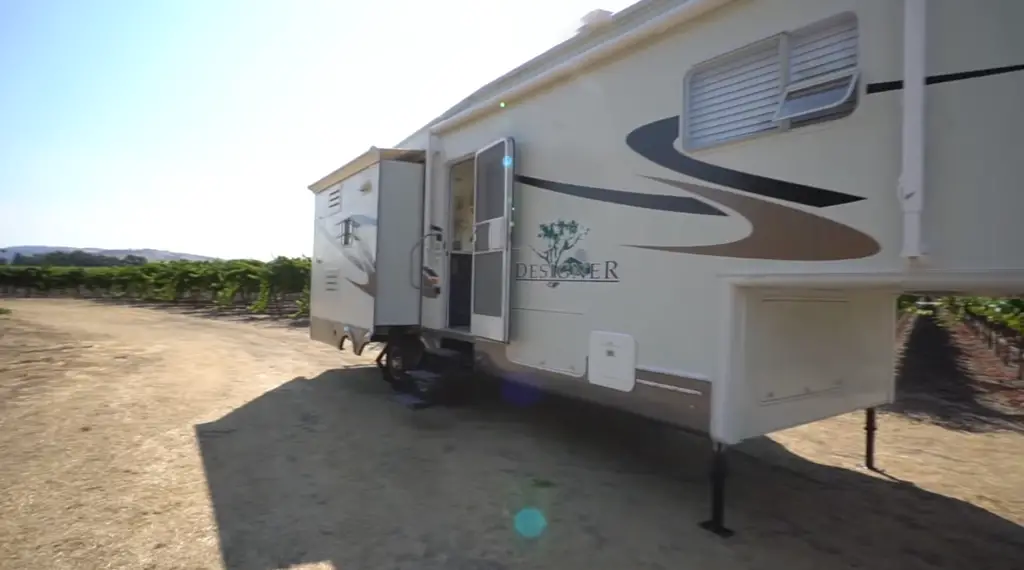
The mobile home is suitable for family vacations, business trips, and traveling with children.
You free yourself from the hassle of booking hotels, transport, unpacking and folding luggage. In addition, this is a real opportunity to visit many places and experience the beauty of a particular country, because there are practically no restrictions on stops for you.
Owning a motorhome, any routes are open to you. It is you who will be able to see such places where other travelers have not been, and all this with comfort.
Benefits of small campers
Saving. Financially such a house is much more profitable. By moving into a motorhome, you will save thousands that you would have spent on a mortgage or rent.
Environmental friendliness. A motorhome is more environmentally friendly and energy efficient than a large stationary home.
Economical size. The compact house does not take up much space in vain, and every square centimeter is used rationally.
You don’t need a large piece of land. A small house does not need a large plot of land. If you don’t like the place where you stayed for a while, you can move to another one. It’s easy and inexpensive.
Not a lot of maintenance and cleaning costs. In a small house, repairs or cleaning will not be intimidating by scale and cost. It will take you minutes, not hours, to get everything in order. Think about saving effort and time.
Low heating and air conditioning costs. The smaller the house, the cheaper the utilities.
The economy in terms of decor. In a compact house, there is no need to think about how to decorate the room, because all you need is the necessary set of quality furniture. Therefore, decorating a motorhome is easier and more economical. [5]
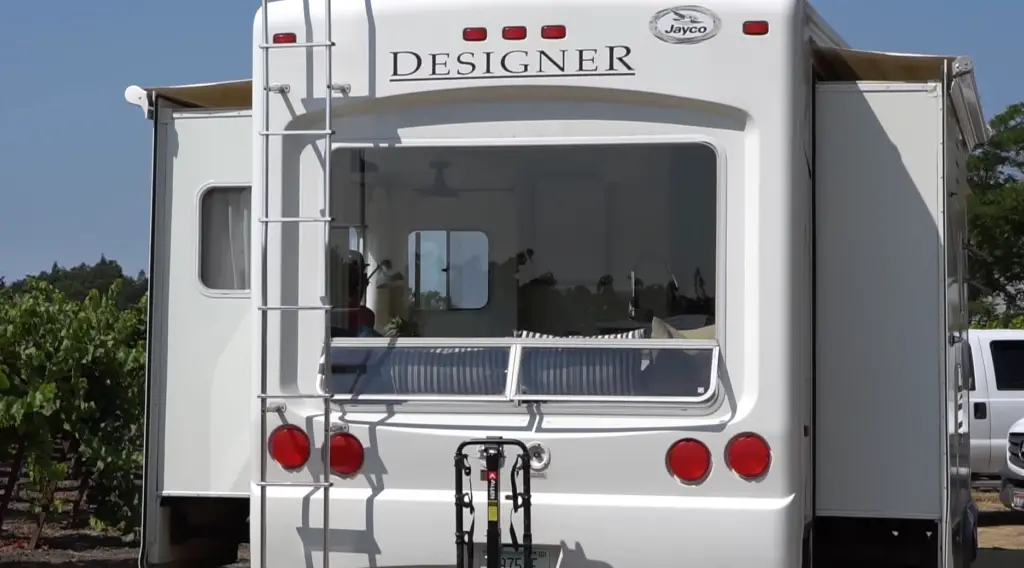
Disadvantages of motorhomes
Despite the advantages, living in a small camper has a number of disadvantages:
- Diseases and injuries. If you get sick or injure yourself, then living in a small house will become uncomfortable due to lack of space. Although many retirees do not mind living in such houses, dangers await them here. For example, to go upstairs, where the bedroom is located, you need to go up a steep staircase, which is both difficult and dangerous. Even back pain can become overwhelming discomfort. In addition, if you set up a house in a remote area, then it will take a very long time to wait for help.
- Building codes. Each region has its own regulations that regulate construction work, and in most cases there is nothing about motorhomes in them. Local authorities very often do not know how to build relationships with the owners of such houses, or how to issue parking permits for such a house. Even if everything seems logical, there are no special procedural laws.
- Public opinion. It doesn’t matter how much you love your house and life in it. There will always be ill-wishers among relatives, friends, strangers who will not approve of your choice.
- There is no personal space. If, for example, you work at home, then there is no place for organizing a personal account in such a house, since there is already little usable space in it.
- Small kitchen. Cooking in a small kitchen will always be inconvenient.
- Little storage space. This is a very big problem that we have to deal with every day. In addition, you will not be able to purchase goods in bulk, as there is no place to store them. [6]
What’s the Difference Between RV Life and Van Life?
RV life and van life are both popular ways to travel the country, but they have some key differences. Here are a few of the most notable:
- Cost: RVs can be expensive to buy and maintain, while vans are relatively affordable.
- Space: RVs offer more space than vans, which can be cramped.
- Comfort: RVs have all the amenities of home, while vans can be more basic.
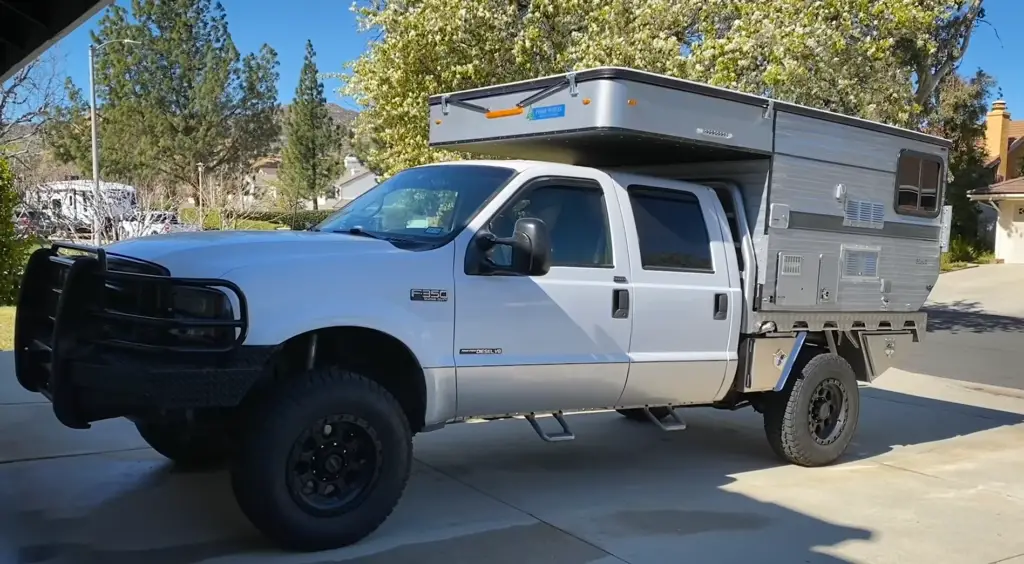
What Are the Benefits of RV Life?
RV life has some great benefits, including:
- You can bring all the comforts of home with you on the road.
- RVs are great for families or groups who want to travel together.
- You have more space in an RV, so it’s easier to live and work on the road.
What Are the Benefits of Van Life?
Van life has become a popular option in recent years for a few reasons, including:
- Vans are more affordable than RVs.
- They’re easier to drive and park.
- You can go places that RVs can’t, like into the city or down narrow roads.
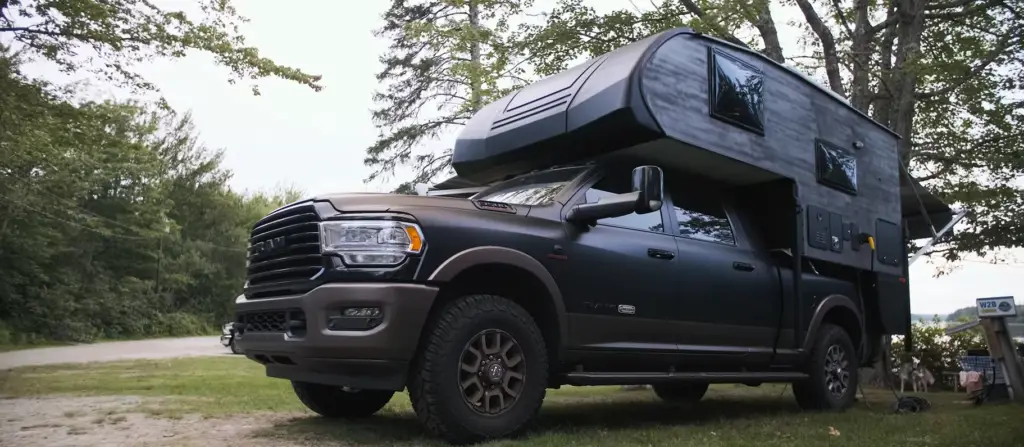
What Are the Disadvantages of RV Life?
Even if you find a used RV that’s in good condition, the monthly payments can be higher than what you would pay for an apartment or house. And then there are the additional costs of gas, maintenance, and repairs.Another downside is that RVs can be difficult to maneuver. If you’re not used to driving a large vehicle, it can take some time to get comfortable behind the wheel. And even when you are comfortable driving your RV, it can be challenging to find parking spaces that are big enough to accommodate your rig.
Finally, RVs can feel a bit isolating at times. If you’re used to having neighbors close by, it can be tough to adjust to life on the open road. And if you’re traveling with family or friends, it can be challenging to find activities that everyone enjoys.
Overall, RV life is a great option for those who want the comforts of home while they travel. However, it’s important to weigh the pros and cons before making the decision to live on the road in an RV.
What Are the Disadvantages of Van Life?
If you’re used to living in a house or apartment, it can be tough to adjust to life in a van. Even if you have a large van, it’s likely that you’ll have to downsize your possessions significantly.Another downside is that vans can be uncomfortable. If you don’t have a comfortable place to sleep, it can make for some very long and sleepless nights on the road. Additionally, vans can get extremely hot or cold depending on the weather, so it’s important to be prepared for extreme temperatures.
Finally, vans are not always the most reliable vehicles. If you break down in the middle of nowhere, it can be very difficult (and expensive) to get your van towed or repaired. Additionally, vans often have much lower gas mileage than cars, so you’ll need to plan your trips carefully to avoid running out of fuel.
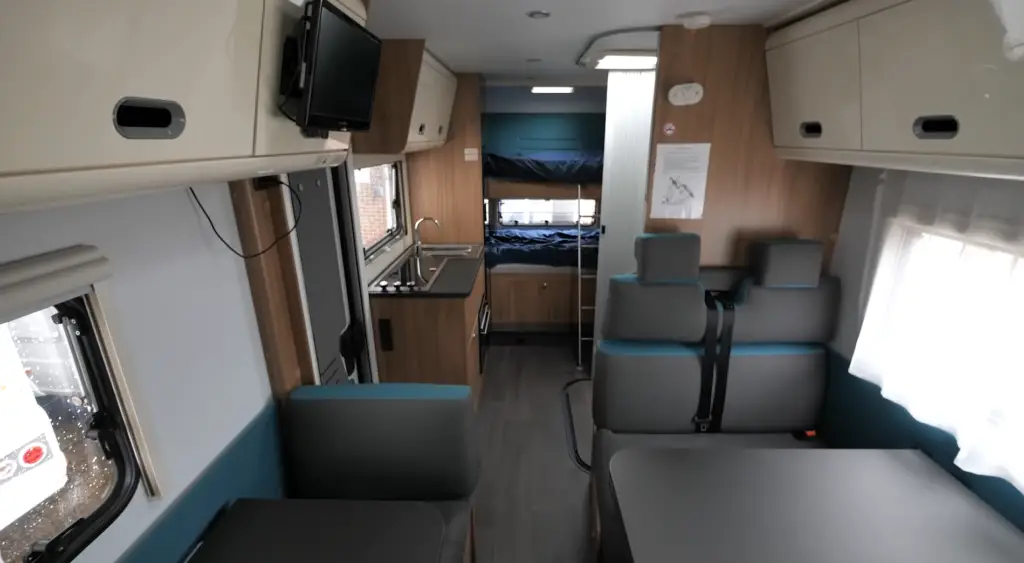
Are Vans Cheaper Than RVs?
One of the biggest advantages of van life is that vans are usually much cheaper than RVs. If you’re on a budget, van life can be a great way to travel without spending a lot of money. Additionally, vans are often easier to drive and park than RVs, so you won’t need to worry about maneuvering a large vehicle.
However, there are also some downsides to van life, such as the lack of space and comfort. Additionally, vans can be difficult to repair if they break down, and they often have low gas mileage. So, it’s important to weigh the pros and cons before deciding whether van life is right for you. [7]
Is Van Life a Good Investment?
Van life can be a great investment, especially if you plan on traveling for an extended period of time. The initial cost of buying a van may seem high, but it’s important to consider the long-term savings. For example, you won’t have to pay for gas, campgrounds, or hotels while you’re on the road. Additionally, vans are often cheaper to insure than RVs.
However, there are also some downsides to van life. For example, vans can be difficult to drive and park, and they often break down. Additionally, you may have trouble finding places to camp or park your van overnight. So, it’s important to weigh the pros and cons before deciding whether van life is right for you. [8]
Is RV Life or Van Life Better?
The answer to this question depends on your personal preferences. If you want the comforts of home while you travel, RV life may be a better option for you. However, if you’re on a budget or prefer a smaller living space, van life may be a better choice. Ultimately, the best way to decide is to weigh the pros and cons of each lifestyle before making your decision.
If You Love RVing, You Need to Stay Informed
For example, you should know how to properly maintain your RV and what to do if you break down. Additionally, it’s important to research campgrounds and RV parks before you travel so that you can find the best places to stay.Is It Realistic to Live in a Van?
The answer to this question depends on your lifestyle and needs. If you enjoy being outdoors and don’t mind being away from the comforts of home, then van life could be a great option for you. However, if you need to be near civilization or have a family, then an RV might be more realistic. Of course, there are always exceptions to the rule. Some people live in vans because they prefer the simplicity of van life or because they can’t afford an RV. And some people live in RVs because they want the amenities that come with them or because it’s easier to travel with an RV. Ultimately, the decision of whether to live in a van or an RV comes down to your personal preferences.
FAQ
What is the cheapest state to live in an RV?
The cost of living in an RV varies from state to state. For example, the cost of fuel and camping fees will be higher in states with a higher cost of living.
Where do most full time RVers live?
There are a variety of campgrounds that full-time RVers live at. For example, some people prefer to live in private campgrounds, while others prefer state or national parks. Additionally, some people live on their own land, while others rent space from someone else. Ultimately, the best way to find a campground is to ask around for recommendations or search online for reviews. [9]
How much money do you need to retire and live in an RV?
The amount of money you need to retire and live in an RV varies depending on your lifestyle and needs. For example, if you plan on traveling often, you’ll need more money for fuel and camping fees. Additionally, if you want to live in a luxurious RV, you’ll need to budget for a higher monthly payment. So, it’s important to consider your lifestyle and needs before deciding how much money you need to retire and live in an RV.
Do you have to pay taxes if you live in an RV?
The answer to this question depends on your state of residency. For example, some states require you to pay taxes on your RV if it’s your primary residence. Additionally, some states have sales tax on RVs.
Can you live in an RV permanently?
Yes, you can live in an RV permanently. However, there are a few things to consider before making the decision to do so. For example, you’ll need to make sure that you can afford the monthly payments and maintenance costs. Additionally, you’ll need to find a place to park your RV. So, it’s important to do your research before deciding to live in an RV permanently. [10]
Can you claim an RV as a primary residence?
The answer to this question depends on the laws in your state. For example, some states require you to have a permanent address in order to claim an RV as your primary residence. Plus, a few states have residency demands that you must comply with to call an RV your primary home. So, it’s important to research the laws in your state before claiming an RV as your primary residence.
Why is Van Life so popular?
There are a few reasons why van life has become so popular in recent years. For example, more people are choosing to live minimally and van life provides the perfect opportunity to do so. Additionally, van life is often cheaper than other types of living arrangements, such as renting an apartment or buying a house. So, it’s not surprising that van life has become increasingly popular in recent years.
Useful Video: VAN LIVING or RV LIVING | which one is the right fit for you?
Conclusion
If you’re still on the fence about which type of life to choose, hopefully this article has helped clear up some of the differences for you. Ultimately, only you can decide what’s best for your individual circumstances and needs, but we hope that this information will help make your decision easier. Are there any other factors you think are important in making this choice? Let us know in the comments below!
References
- https://airstreamclub.org/future-members/club-rich-heritage
- https://vintagenewsdaily.com/inside-the-wanderer-the-worlds-oldest-leisure-caravan-in-existence/
- https://campersmarts.com/rv-history-the-neo-classic-era
- https://www.peanutsorpretzels.com/features-of-rv/
- https://bowlus.com/blog/tips/benefits-of-small-camper-trailer/
- https://familyoffduty.com/pros-and-cons-of-owning-a-motorhome/
- https://www.campervantraveler.com/van-life-vs-rv-which-is-better/
- https://vancampinglife.com/when-are-camper-vans-a-good-investment/
- https://togorv.com/rv-living/guide-to-full-time-rv-living/
- https://offgridpermaculture.com/Finding_Land/How_to_Live_in_an_RV_on_Your_Own_Land_Legally.html

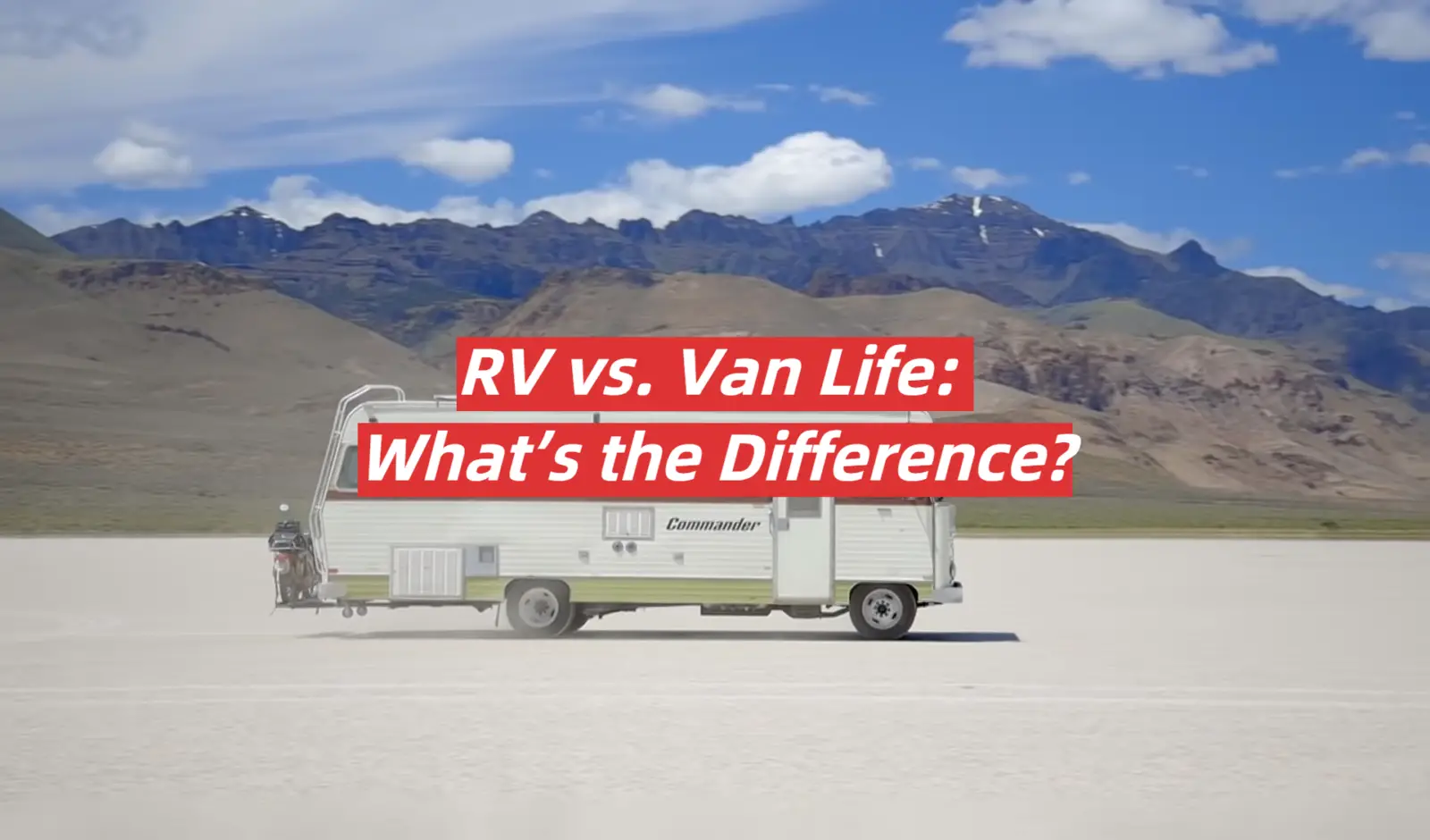
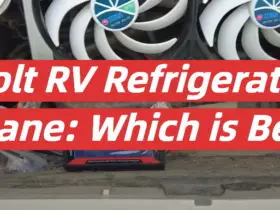

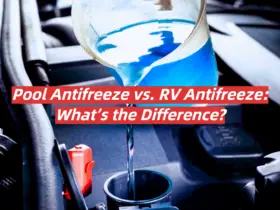
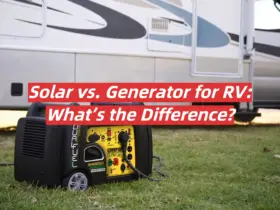
Leave a Reply